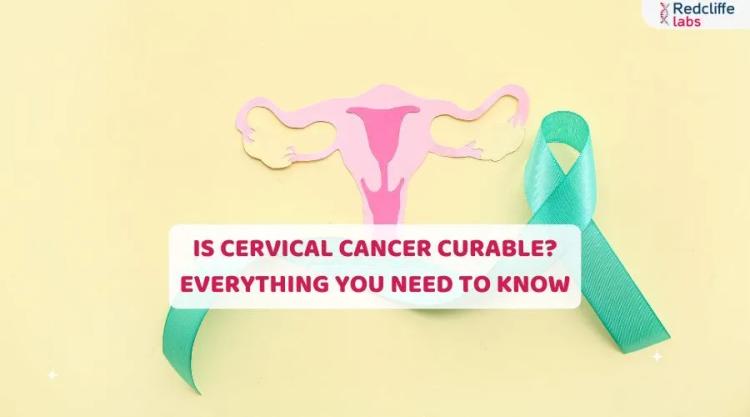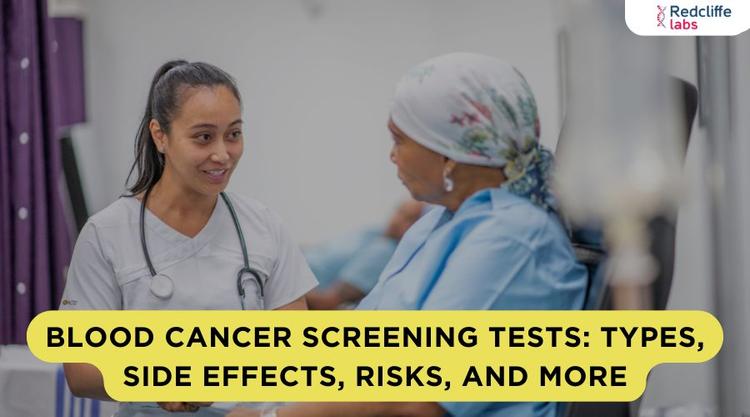HPV and Cervical Cancer: Everything You Need to Know

Medically Reviewed By
Dr Divya Rohra
Written By Meenakshi
on Feb 3, 2024
Last Edit Made By Meenakshi
on Jan 7, 2025

Cervical Cancer is a growing health concern among women. Despite its potentially life-threatening consequences, it often gets overlooked. If we believe the studies, many women are unaware of its prevalence and impact. Therefore, there is a critical need for understanding and managing the condition. Understanding the root cause of the concern, which is HPV, aka Human Papillomavirus, is the very first step towards preventing its onset and progression and ensuring better management. So, let’s delve into the information to understand the intricate relationship between Cervical Cancer and HPV.
What is Cervical Cancer?
Cervical Cancer is another type of Cancer. It begins in the cells lining the cervix that connects to the vagina and develops gradually over time. It starts with precancerous changes and then progresses to Cancer if not detected and treated. The primary cause of most Cervical Cancer is HPV, Human Papillomavirus, a sexually transmitted infection. HPV infections are common, and the body usually clears the virus. However, in some cases, certain strains of HPV can take the cancerous form, eventually resulting in Cervical Cancer. This may not cause symptoms in its early stage, making diagnosis difficult, highlighting the significance of routine screening and early detection for better management.
What is HPV?
HPV, short for Human papillomavirus, is a group of viruses transmitted via sexual contact. With over 100 identified types, some HPV strains can cause warts on various body parts, including the genital area, leading to Cervical Cancer. While many HPV resolves on their own without causing symptoms or health complications, some strains can lead to issues, including some forms of Cancer. HPV is further classified into two main forms: low-risk HPV & high-risk HPV. The good news is that vaccination against HPV is available and is recommended for adolescents before their first exposure to the virus.
Relationship Between HPV And Cervical Cancer
HPV is considered the root cause of most Cervical Cancer. Persistent HPV infections with high-risk HPV strains can cause modifications to the cells of the cervix, causing them to become cancerous over time. While HPV causes cervical Cancer, it is essential to understand that not all HPV leads to Cervical Cancer. Persistent high-risk infections can cause changes in the cervical cells, progressing to precancerous lesions and, if left unaddressed, can develop into cervical Cancer. Early detection matters for better outcomes.
Reasons Why Early Detection Is Crucial:
For Cervical Cancer:
- Allow Timely Intervention: Early detection of Cervical Cancer allows timely medical intervention before these changes progress to invasive Cancer.
- Improve Treatment Options: If identified early, cervical Cancer can be treated and ensure high survival rates. The treatment at the early stage is less invasive and more effective.
- Prevent Progression: Moreover, early diagnosis of cervical Cancer helps one take charge of the condition, controlling the development of precancerous lesions to invasive Cancer and offering a better chance of treatment.
For HPV:
- Identify High-Risk HPV Strains: Early detection helps identify the type of HPV strain, allowing doctors to recommend the treatment and other preventive measures to monitor and manage cellular changes in the cervix caused by persistent infections.
- Preventive Measures: The earlier the disease is diagnosed, the better, as it allows healthcare providers to recommend the lifestyle or dietary changes that one may need to protect against high-risk HPV strains.
- Monitor & Intervention: Early detection of HPV facilitates timely intervention, reducing the risk of developing cervical abnormalities. In addition, it helps monitor changes and suggest improvements in the treatments as required.
Whether we accept or not, early diagnosis is crucial for preventing Cervical Cancer. It identifies precancerous changes caused by HPV infections. It empowers individuals to access timely treatment, reducing the impact of this life-threatening disease. Regular screening is the key to identifying the threat early and acting while there is still time.
Common Tests For Cervical Cancer And HPV Screening:
- Pap Test (PAP Smear): Doctors often recommend a PAP Smear Test, also called the PAP Test, to examine abnormalities or precancerous changes, allowing early detection and better management. According to expert guidelines, women should start PAP Screening at age 21 and repeat it every three years to confirm or rule out the risk of Cervical Cancer. The test may help identify the threat early so that complications can be avoided to a possible extent.
- HPV Screening: Moreover, another important screening that helps with early detection is HPV Screening, which detects high-risk strains of HPV linked with cervical Cancer. Doctors often recommend HPV Screening for individuals aged 30 and older or in combination with a PAP Test for a more comprehensive screening.
Remember, both tests are important to ensure early diagnosis, allowing better management. Still, the frequency and specific guidelines may vary for every individual, depending on their risk factors, medical history, and more. As per the WHO, short for World Health Organization, Cervical Cancer, which begins in the cells lining the cervix and develops gradually, is one of the most preventable and treatable Cancers. Early detection, timely intervention, and HPV vaccination help with it. Therefore, whether you are at risk or not, follow the guidelines and consider routine screening to track your health and identify abnormalities early, even before the symptoms appear.
#BeYourOwnShero – Cervical Cancer Awareness Month
January is observed as Cervical Cancer Awareness Month, and the aim is to encourage women to prioritize their health and be an example for society. With this thought in mind, we created a campaign called #BeYourOwnShero to encourage women to take charge of their health independently.
Reach Redcliffe Labs For Regular Screening
Whether you want to book a routine PAP Smear Test or Human Papillomavirus (HPV) DNA Detector Test, Redcliffe Labs is the best diagnostic provider to get tested. We offer a range of diagnostic tests, from preventive to specialized, at highly affordable rates, making us Healthy India Ki Trusted Lab. You can schedule the test online and get tested comfortably from your home.



